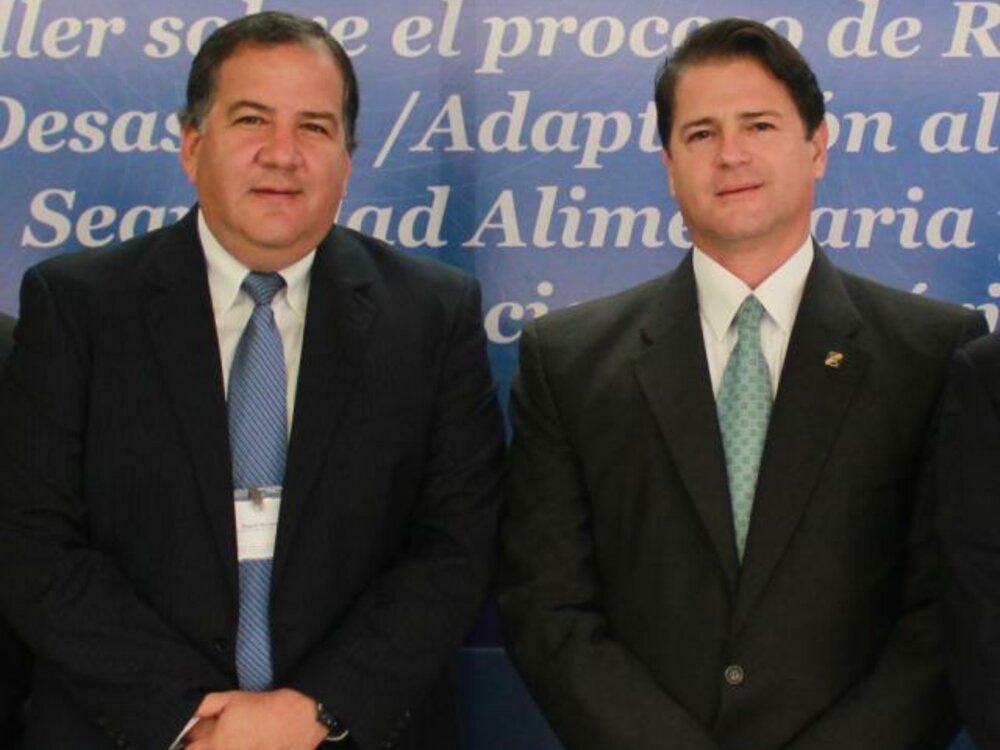WFP and CABEI join efforts to reduce risk of climate change and food insecurity

WFP and CABEI promote regional project to establish risk reduction strategies in the region.
The World Food Program (WFP) and the Central American Bank for Economic Integration (CABEI) inaugurated a workshop called, "The Process of Disaster Risk Reduction/Adaptation to Climate Change and Food Security: A Resilience Agenda for Central America.”
Experts in emergency management and climate change gathered at the CABEI headquarters in order to work together with technicians from regional governments and institutions of the Central American Integration System to consolidate an alliance between the different entities. The objective was to join forces and develop an Action Plan to counteract the impact of climate change, reduce disaster risk and promote the resilience of vulnerable people in the communities of the region’s Dry Corridor and their ability to improve their living conditions.
The Dry Corridor is the driest area in parts of El Salvador, Nicaragua, Honduras and Guatemala, which is home to 8.6 million people and nearly one million producers of basic grains practicing small scale farming. Droughts cause loss of crops and seeds and create food insecurity and malnutrition. They also reduce employment opportunities and incomes and cause increased migration and livestock losses.
As the region’s development bank, whose objective is to improve the quality of life of Central Americans, CABEI has backed the following projects in Nicaragua: Products in Value Chains and Market Access (PROCAVAL1), a Development Program for Agricultural, Aquaculture and Forestry Production Systems in the Territories of the North Atlantic Autonomous and the South Atlantic Autonomous Regions of Nicaragua, and the Program for the Promotion of Nicaragua’s Sustainable Agricultural Productivity (PFPAS2), benefiting more than 33,603 families of producers and creating more than 15,022 new jobs.
In El Salvador, CABEI promoted the Plan for Family Agriculture and Rural Entrepreneurship for Food Security and Nutrition (PAF3), which supported the work of 395,000 producers.
In Honduras, CABEI supported the implementation of the Modernization of the Comayagua Valley Irrigation Project (PROMORCO4), benefiting more than 1,222 families in the Comayagua Valley, who currently export their production to international and national markets. At present, CABEI is assisting the Improving Competitiveness Project (PROMECOM5) in the department of Yoro, Honduras, benefiting more than 15,000 families. Recently the Bank approved an Irrigated Agricultural Development Program with coverage in 11 departments, which includes the rehabilitation of the irrigation systems in Selguapa and San Sebastián, and the construction of irrigation systems in Olomán and Sulaco, benefiting more than 4,358 families.
For its part, the WFP is implementing the Agroforestry and Climate Change Adaptation program in Honduras, which focuses on sustainable medium and long term solutions: a) protecting the environment in vulnerable areas (watershed management) and b) diversifying the livelihoods of vulnerable populations with fruit trees and other crops, as well as teaching them water conservation techniques. The project’s activities will include the establishment of nurseries, orchards and home gardens, which will in turn lead to conditional food transfer programs that will generate assets at the community level. The selected beneficiaries will be small landowners with properties in degraded watersheds and high levels of food insecurity.
An essential part of the UN’s World Food Program (WFP) mandate is investing in essential prevention and mitigation measures to prevent hunger. The 2011 WFP Policy on Reduction and Disaster Risk Management targets promoting the resilience and ensuring the food security of the most vulnerable population, while reducing disaster risk and protecting and enhancing their means of subsistence.





